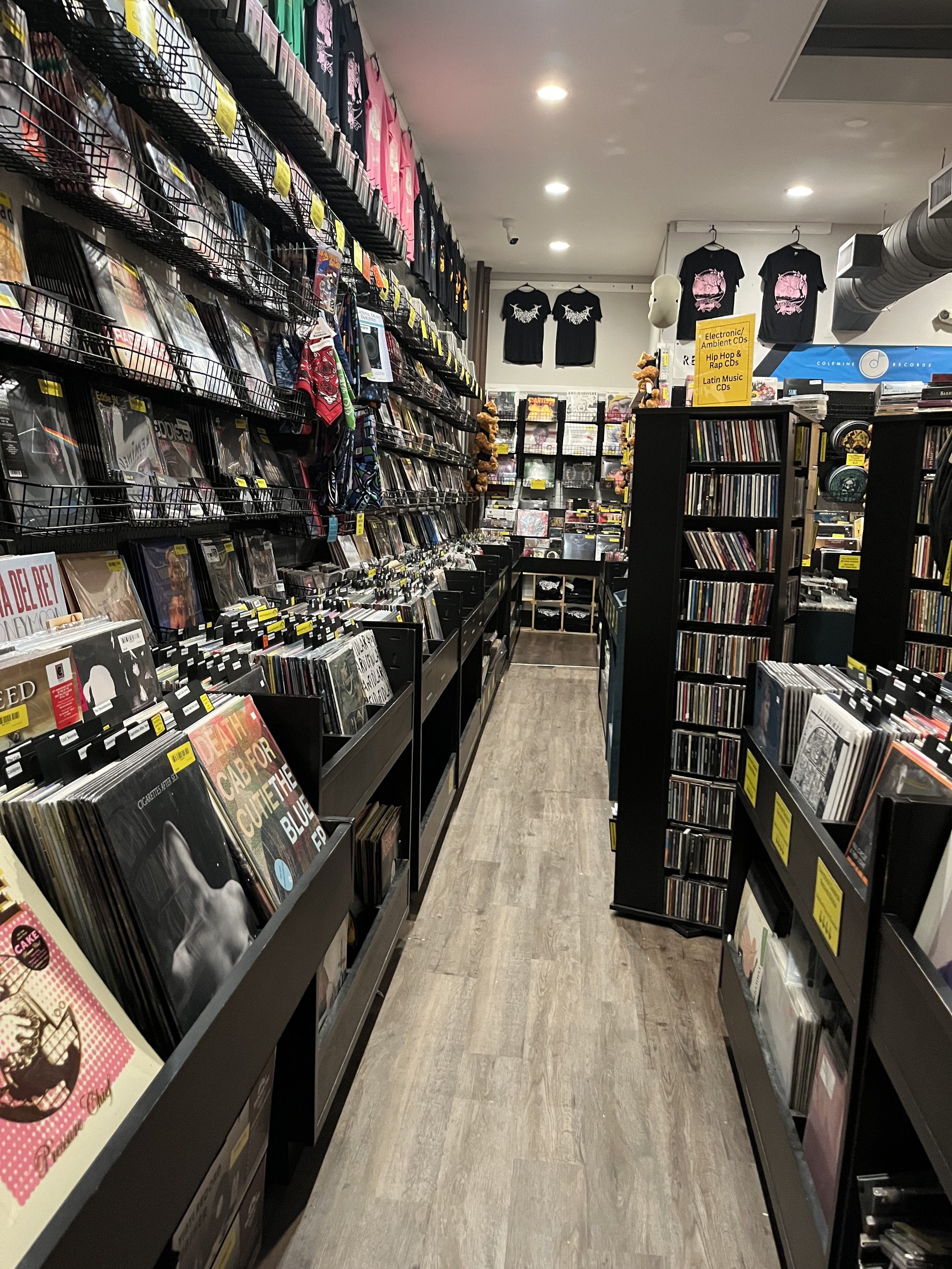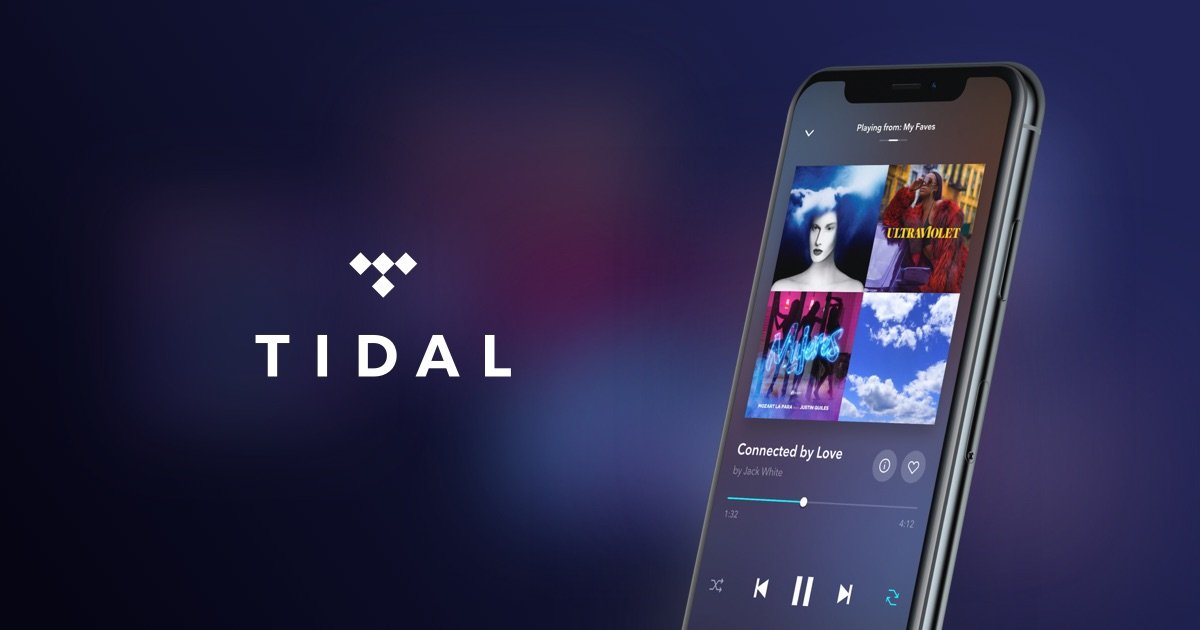Fresh Produce Records in Macon, GA | Photo by Jason Earle
By Jason Earle
Spotify is a shit product. Yes, it is the global dominator of the music industry. Yes, almost all of your favorite artists can be found there. Yes, most of your favorite artists promote their work on on that platform even though they hate it. And yes, you have your playlists and stations you love and don’t want to give up. I am here for some tough love and to tell you it is time to move on.
What makes it a shit product? First of all, Spotify pays artists peanuts. They put their work on the platform for basically free. Spotify pays ~$0.003 per stream. The other services aren’t great, but read that number again. For comparison, Tidal pays about a penny a stream. It may not seem like much, yet over time those fractions add up.
On top of the paltry payout, Spotify’s algorithm is not as good as Pandora’s, Tidal’s, or Apple’s. Its interface must be the worst of the bunch. And, in a world of abhorrent giant corporations whose actions read like those of cartoon villains, Spotify is the spawn of Cruella de Vil and Bizarro Superman.
Spotify’s founder and owner Daniel Ek recently invested a fuck ton of money in an AI military software startup company. Your $9.99 a month may not support artists, but it will go to murdering people. Increasingly, your daily playlist will have AI generated “music” with no such label on it. One second, you are listening to a classic from George Strait, next up is the latest offering by Country Cate.
There may be no ethical consumption under capitalism, but I refuse to give up the fight. That said, I am no saint. My podcasts (The Marinade and Life’s Greatest Hits) are released on Spotify and I collaborate on a Spotify playlist in hopes of drawing more attention to my art and that of my friends. The idea that it may all amount to enough exposure to make a living forces some moral gymnastics in the current marketplace. Or, we can all jump ship.
Tidal is my preferred Spotify substitute. It has been my streaming service of choice for a few years. Kanye West is involved, so that unfortunately has to be factored into one’s decision. Apple is another option. No one is pretending that they are a bunch of sweethearts, but it’s a whole hell of a lot better than the status quo. Or, we could do something radical and take a step back that is really two steps forward.
As a public school teacher for the last fifteen years, I have had a hand in raising a couple of generations. Trust me when I say the group of folks who are in their mid to late twenties right now are the coolest folks on the planet.
They were the last generation raised without ever-present smart phones. During their formative years, Barack Obama (who I have a ton of qualms with) was president. Say what you will - and I will - he was dignified, intelligent, open-minded, and thoughtful. That group of people projects a similar profile.
Gen Z had the internet as kids but it was not a place of pure hate at the time. Back then you had plenty of negativity, but the internet’s main function was one of connection and creativity. The group we are talking about still had blog culture and they still read books. They have a great sense of fashion and diverse taste in music.
As adults they have embraced physical media like CDs and vinyl, and can just as likely be found holding an early 2000s-era point and shoot camera as they are a brand new iPhone.
It is not fair to put all of society's burdens on them, and we should save a discussion about the greater implications of their lack of involvement in the political class for another day. It is fair to be optimistic about their potential for influence on the way we consume art, and that influence does not need to be limited to any one generation.
Physical media is the path forward. Contrary to popular belief, I think its coming dominance is almost inevitable. In nearly every way, vinyl and CDs are better options for consuming music than streaming. Buying records at shows and directly from artists is a much more fulfilling way to connect and consume. Doing so supports the artist financially in ways streaming has never.
Plus, you have a tangible document of the art you love. Think about your favorite albums. Regardless of your age, you probably have a deeper connection to the records you listened to on physical media.
We have a crisis of attention in America. Glued to our phones and computers, riddled by the expectation that everything should be available at a moment’s notice. Physical media forces us to be deliberate in our listening. It slows us down and demands careful consideration of the creation.
Lest one get the impression these are the ramblings of an old man, I am all for streaming if done right. So many of my favorite artists rely on streaming to get the word out about their music. Keep streaming, just not on Spotify. When you hear something you like, buy a copy directly from the artist or at your local record store.
We are not powerless against nefarious corporations. Now is the time to assert ourselves and keep art alive.





